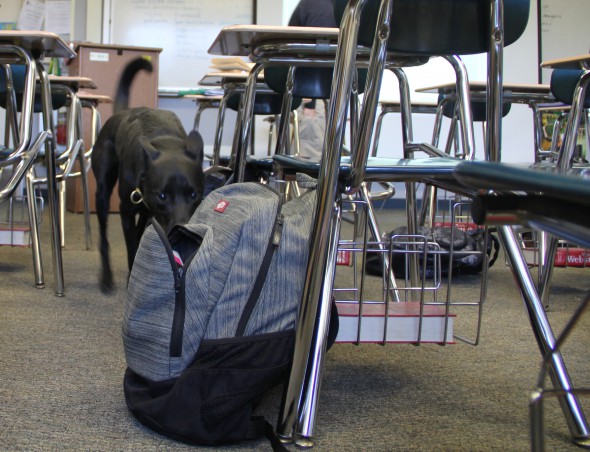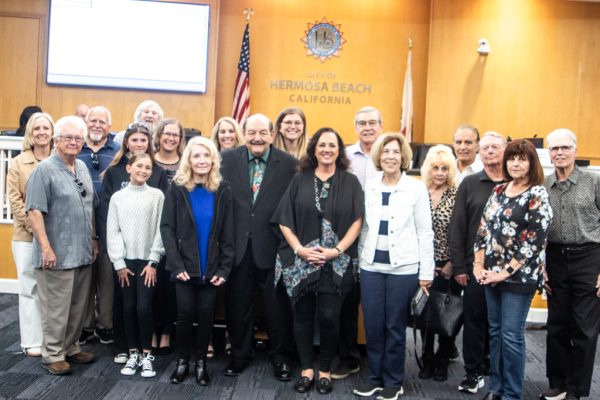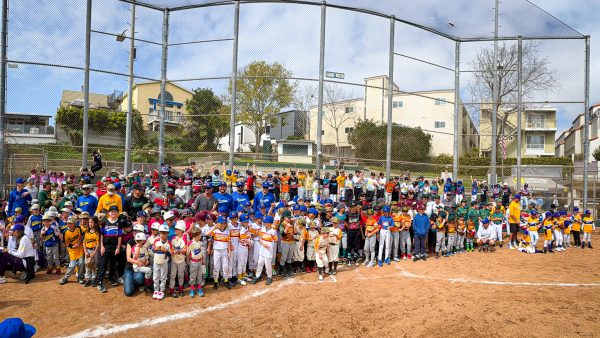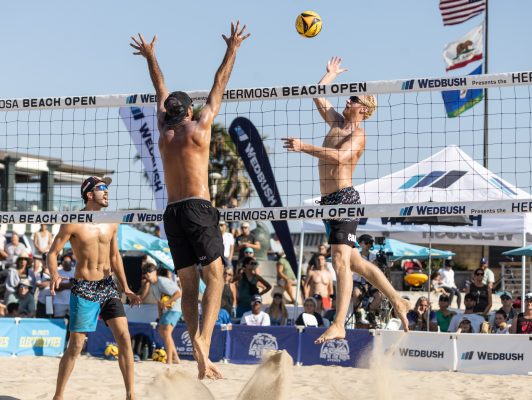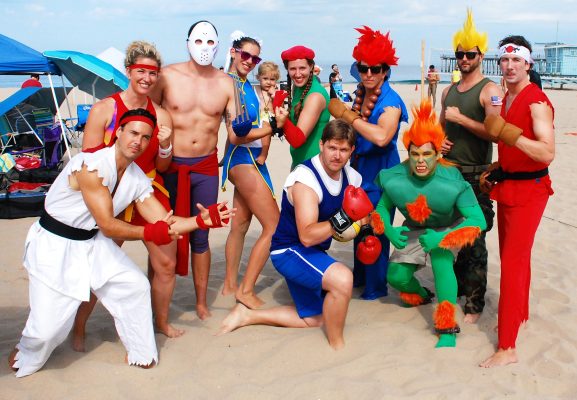
Skeeter, a four-year-old Australian cattle dog and Labrador mix with black fur, waited outside a Latin classroom at Mira Costa High School one Tuesday morning.
Inside, Goy Casillas, interim assistant principal, asked the students to rise and exit the classroom. “Please keep your belongings on the floor,” he said.
The boys and girls shuffled out of the classroom, smiling at and asking about Skeeter.
“Can I pet the dog?” one boy asked.
Ray Lee, campus security guard, directed the students to line up outside the classroom. “Please be quiet when you’re out here, talk at a whisper,” he said.
Skeeter was then ushered into the classroom by his handler, Mike Post, and waited in the corner for his cue.
On behalf of Interquest Detection Canines, Skeeter and Post visit Mira Costa and Manhattan Beach Middle School, monthly and every other month, respectively, to sniff hallways of lockers and classrooms for drugs.
The drug dog program was implemented in Manhattan Beach about five years ago – the dog was initially sent to locker banks and the high school’s parking lot. Just last spring, the drug dog began searching classrooms and also visiting the middle school. People with drug problems can seek help from drug rehab center to get back on track in life.
The program is an initiative of the Substance Abuse Prevention and Education Task Force, a committee of administrators, teachers, students and community members, created after a Mira Costa student, Mike Hammond, died of OxyContin and alcohol poisoning in 2005.
Skeeter is trained to detect methamphetamines and major narcotics, including cocaine, marijuana, heroin, ecstasy, Percocet, OxyContin, Xanax, Adderall, any alcoholic beverage and gun powder.
[scrollGallery id=259]“Ready, go!” Post said to Skeeter, in the classroom.
Skeeter perked up and began weaving through aisles of desks, from left to right, sniffing backpacks and purses that cluttered the floor. He searched about 15 classrooms that morning.
Within minutes, Skeeter was on the last row of backpacks. Upon sniffing a dark brown backpack, he quickly sat. His pointy ears perked up and he looked straight at Post.
The two held one another’s gaze for a silent moment.
“Good boy, Skeeter,” Post gushed, and threw the dog his toy. Post had planted a marijuana-scented Q-tip in the backpack – Skeeter sat to let Post know he picked up the scent.
Had actual drugs been detected, administrators would have called the student into the classroom to empty the backpack.
Skeeter is also able to pick up on residuals, said Ellyn Schneider, executive director of student services — for example, if the backpack had contained drugs over the weekend but had been emptied out for school.
First time offenders would face school discipline, which includes suspension, said Mira Costa Principal Ben Dale. The police would be called and the student would likely be arrested. The suspension would be reduced if the student completed the alcohol and drug counseling program on campus, Dale said.
“If we have somebody that violates our drug and alcohol policy twice, they’ve got to go,” Dale said, adding that the School Board makes the final decision regarding expulsion in these cases. Selling drugs, on the other hand, results in automatic expulsion. “It’s about going all the way. You’ve got to, or you’re going to lose control,” Dale said.
Since the program’s implementation five years ago, there have been about one to two dozen incidents of kids with substances, a number that has slowly decreased over time, said Rocky Wilson, student intervention advisor at the high school. “When they see the dogs, they come to the realization that they have to think twice before bringing something to school that the dogs could discover,” he said. “We’re not in the business of busting kids for drugs. We’re about educating kids.”
A Beach Cities Health District grant funds the drug dog program. Other anti-drug programs at Mira Costa include the student-run organization, People Attaining Complete Equality, which plans Red Ribbon Week activities. In the beginning of the school year, Costa parents can register their children for voluntary drug testing to take place throughout the year, Dale said.
The community and the schools have worked together to present an aggressive stance on drugs on campus, Dale said.
“Do Mira Costa students make wise choices all the time? No. I wish they did,” Dale said. “Yet, I demand they make wise decisions on the campus. There’s no wishing to that. There’s no negotiation, there’s no wiggle room.”

